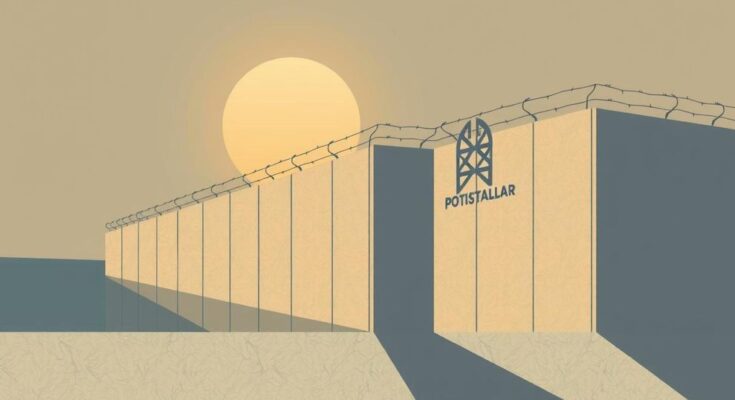Egypt has decisively rejected Israeli leader Yair Lapid’s proposal for the country to administer Gaza for 15 years in exchange for the cancellation of its debt. This reflects Egypt’s ongoing commitment to Palestinian rights and concerns over national security. The nation opposes any proposals that would strengthen the occupation or negatively impact the Palestinian narrative while advocating for self-determination and regional stability.
Egypt has expressed a firm rejection of Israeli opposition leader Yair Lapid’s proposal for Egypt to administer the Gaza Strip for up to 15 years, contingent on the cancellation of Egypt’s external debt. The Egyptian Foreign Ministry condemned the suggestion, labeling it an attempt to bypass the established stance that necessitates Israel’s withdrawal from occupied territories and the establishment of an independent Palestinian state.
This refusal reflects Egypt’s consistent historical position regarding the Palestinian issue. The nation has persistently rejected any suggestions that could solidify the occupation or diminish Palestinian rights, further illustrated by its past refusals to engage in international security efforts within Gaza. Egypt governed Gaza from 1948 to 1967, during which it faced significant humanitarian crises exacerbated by a large influx of Palestinian refugees.
Following the 1967 war, Egypt’s formal governance of Gaza concluded when Israel occupied the region. Since then, although Egypt has maintained a crucial role in regional security and political mediation, it has opted against taking direct administrative control over Gaza due to various concerns.
Cairo’s immediate apprehension stems from national security considerations. The possibility of facing internal resistance from armed factions and the danger of exacerbating tensions with extremist groups, which could threaten Egypt’s own stability, are critical factors in its reluctance to assume control over Gaza. By rejecting this responsibility, Egypt aims to prevent potential complications along its eastern borders.
Egypt is also wary of actions that could force it into a role as a security enforcer for Israel, viewing Lapid’s proposal as an attempt to shift the burden of Gaza onto Egypt while allowing Israel to avoid its own responsibilities. Additionally, Cairo worries the proposal could lead to efforts aimed at divorcing Gaza from the West Bank, dismantling the Palestinian narrative and threatening Palestinian aspirations.
Concerns are amplified by fears that Egyptian control may facilitate the resettlement of Palestinians into the Sinai Peninsula, a scenario Egypt categorically opposes. The country emphasizes its national sovereignty and stability above any offered economic incentives, which Lapid’s proposal includes.
In the past, similar proposals have been presented, including one from the United States in 2023. Despite discussions with U.S. officials, including a proposition from the then-CIA Director, Egypt reaffirmed its position against taking on Gaza’s administrative roles.
Instead of governance, Egypt champions Palestinian self-determination. It advocates for the re-establishment of the Palestinian Authority’s authority over Gaza and supports proposals for a neutral Palestinian government to unify both Gaza and the West Bank, which have faced resistance from Israel. Egypt remains committed to limited support for security measures while avoiding direct administrative involvement.
Egypt’s stance is both clear and strategic, emphasizing a rejection of any administrative role in Gaza that detracts from the Palestinian cause. This is evident in its consistent rejection of proposals from foreign entities despite political and economic pressures, affirming that the solution to Gaza’s challenges lies not in Egyptian governance but through comprehensive negotiations for a rightful Palestinian state.
In conclusion, Egypt’s steadfast refusal to assume administrative control over Gaza underscores its commitment to Palestinian rights and sovereignty. The nation’s concerns regarding national security, regional stability, and potential political repercussions outweigh any economic incentives offered by external parties. Egypt continues to advocate for a resolution rooted in Palestinian self-governance and unity while maintaining its position as a mediator in the ongoing conflict. This approach illustrates Egypt’s dedication to a long-term, sustainable solution rather than temporary fixes that serve external interests.
Original Source: www.eurasiareview.com




